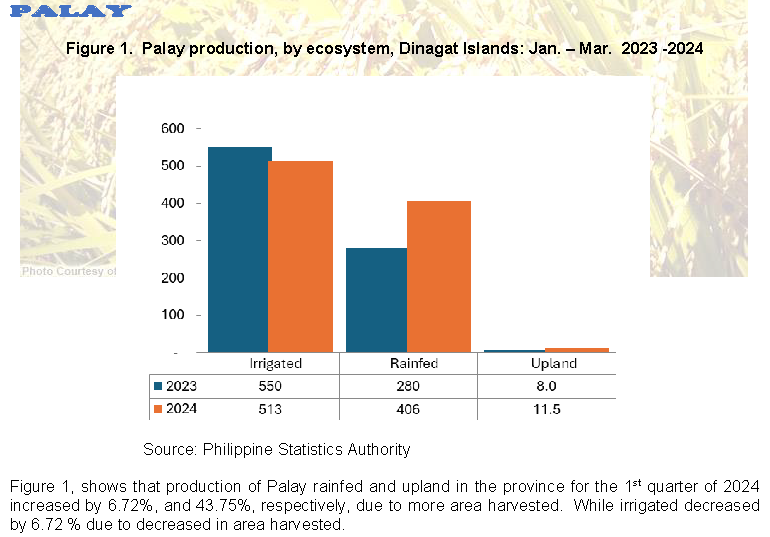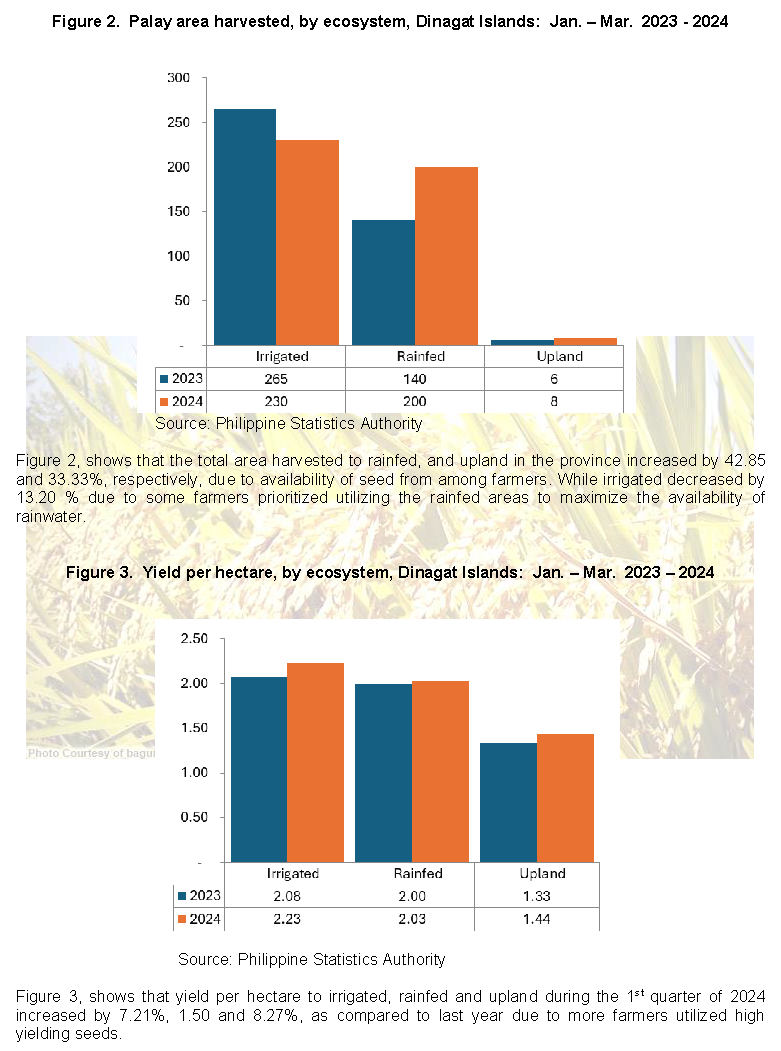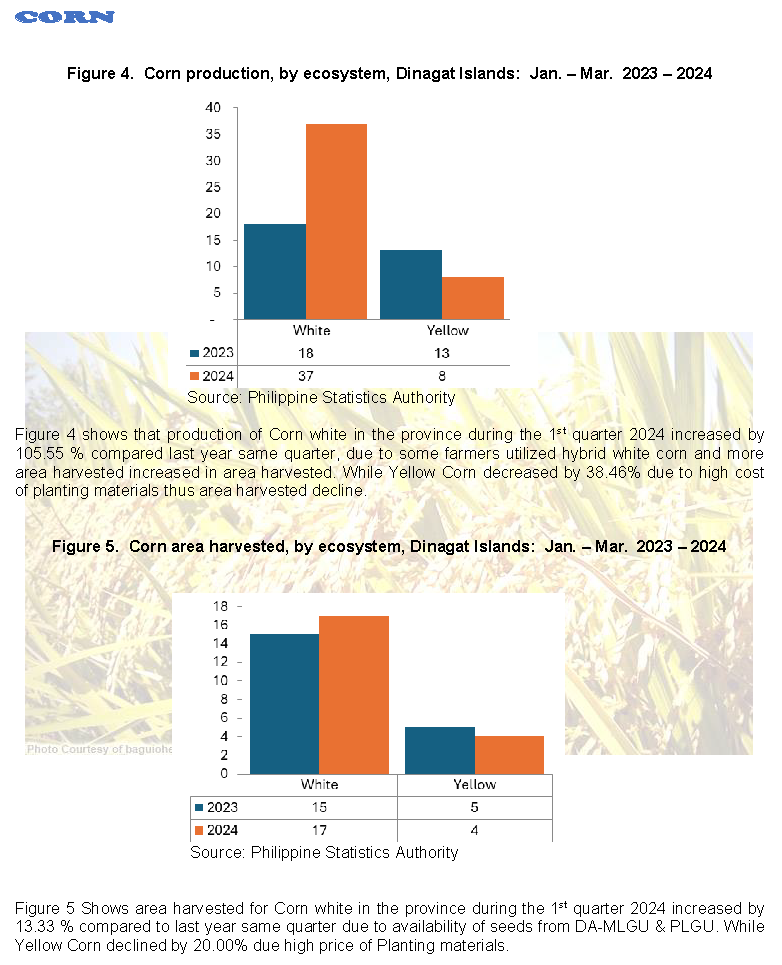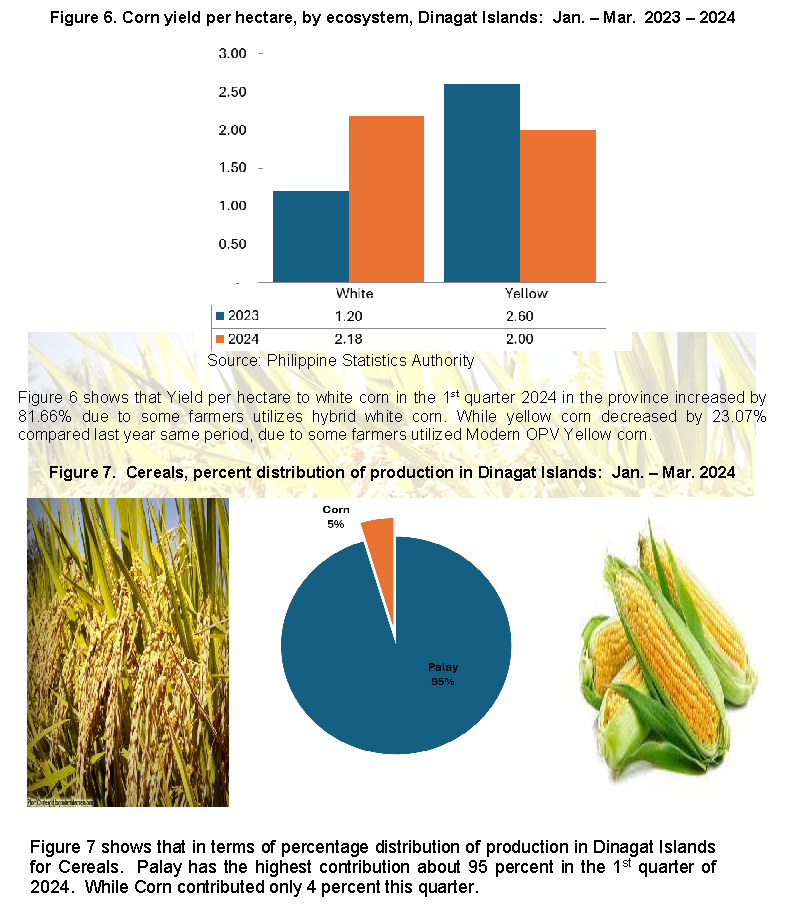The provincial palay situation in the 1st quarter of 2024, shows an increasing production as compared to last year same quarter, from 838.00 MT to 930.50 MT or 11.04 percent, brought by the increase in area harvested. Compared to last quarter it declined from 1740.99 MT to 930.50 MT or 46.55 percent dropped. The decrease was due to more rainwater during vegetative to early reproductive stage (water stress).
Corn production situation, current year compared to last year same quarter increased from 31 MT to 45.00 MT or 45.16 percent. Compared last quarter it increases from 38.44 MT to 45.00 MT or 17.06 percent. The increase was due to some farmers utilizes hybrid white corn and increased in area harvested.

Figure 1, shows that production of Palay rainfed and upland in the province for the 1st quarter of 2024 increased by 6.72%, and 43.75%, respectively, due to more area harvested. While irrigated decreased by 6.72 % due to decreased in area harvested.



Prepared/Approved by:
(Sgd.) VILLUZ C. OROZCO
Supervising Statistical Specialist
TECHNICAL NOTES
The PCPS has two (2) components: the Palay Production Survey (PPS) and the Corn Production Survey (CPS). The PPS and the CPS are quarterly surveys which are the major source of palay and corn data on production, area and yield. Other information generated from these surveys are farm/crop type and variety, monthly distribution of production and area harvested, farm household disposition and consumption of production, planting intention indicators, source of irrigation water, and usage of fertilizer and seeds. Information on area with standing crop and/or area intended to be planted during the current quarter are also gathered which serve as basis for the two quarters ahead forecast. The PPS and CPS are conducted simultaneously.
Irrigated Palay Farm – A farm that has standing water for its growth and is provided by artificial means like; water pump, force/power, gravity or irrigation water.
Rainfed Palay Farm – A farm that depends solely on rainfall for its water supply.
Palay Seed type:
Hybrid – First generation offspring of two genetically dissimilar parents; seeds from this variety are not recommended for planting for the next season.
Certified – Produced from the planting of registered seeds by selected farmers – co-operators throughout the country in accordance with the prescribed rules and regulations. This class of seeds must pass the standard of quality and purity set forth by the seed certifying agency or the Philippine Seed Board (PSB).
Good Seeds – Refer to seeds produced from properly selected certified seeds not yet approved by the Seed Board but meet the prescribed standards set by the Certifying Agency.
Farmers’ seeds – varieties grown by farmers for many years regardless of generation; late maturing; less responsive to nitrogen fertilizers.
White Corn Farm – A farm planted to white corn that is used generally for human consumption.
Yellow Corn Farm- A farm planted to all types of corn other than white that are used generally as feed grains.
Corn Seed Type:
Hybrid – Seeds that are product of crossing male and female “parent” varieties.
OPV (Open Pollinated Varieties) – Seeds that are pollinated without human intervention and where seeds are kept and reliably produce the same plant as the parent seed when planted in the next cropping.
Native – Seeds that are indigenous such as Davaonon, Tinigib and katorse, etc.
For more information, contact us at:
PHILIPPINE STATISTICS AUTHORITY
Provincial Statistics Office-Dinagat Islands
Cotanda Building, P-2, Sta. Cruz, San Jose,
Province of Dinagat Islands, Philippines
Email Address: dinagatislands@psa.gov.ph

